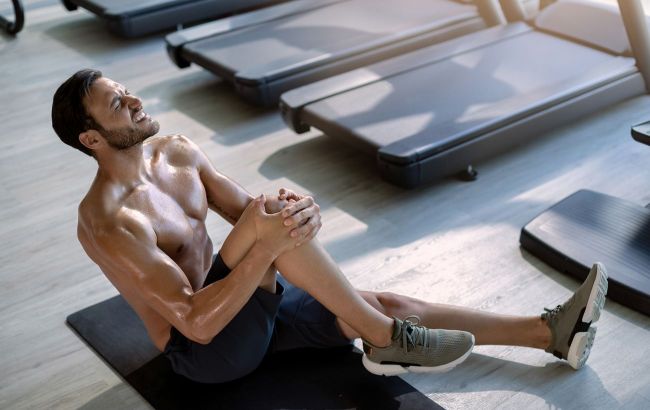Debunked: Lactic acid doesn't cause muscle pain, scientists say
 Illustrative photo (Photo: Freepik)
Illustrative photo (Photo: Freepik)
Many people encounter an unpleasant issue when returning to workouts after a long break - muscles become very sore. A widely spread misconception is that such soreness arises due to the accumulation of lactic acid in the muscles.
RBC-Ukraine, based on The Conversation, explains why this hypothesis is incorrect and reveals the actual reasons behind muscle soreness after workouts.
Is lactic acid a myth?
Research shows that lactic acid has no relation to such pains. Cells produce lactate, not lactic acid. This process actually counteracts rather than causes an accumulation of acid in muscles and the bloodstream.
Although lactate doesn't cause serious issues for the muscles used during training, inertia leads many to still use the term lactic acid. However, lactate isn't the cause of soreness in the days following workouts. And without it, you would probably fare worse due to other benefits for your muscles.
Why muscle pain occurs after workouts
When exercising, many chemical reactions occur within muscle cells. All these reactions accumulate products and by-products that cause water to enter cells.
This leads to increased pressure within and between muscle cells.
This pressure, combined with molecule movement from muscle cells, can stimulate nerve endings and cause discomfort during training.
The pain and discomfort you sometimes feel hours or days after unfamiliar types or amounts of exercise have a different set of causes.
If you train beyond your usual level or regimen, you can cause microscopic damage to muscles and their connections with tendons.
Such damage triggers the release of ions and other molecules from muscles, causing local swelling and stimulating nerve endings.
This is sometimes called delayed onset muscle soreness (DOMS).
While damage occurs during exercise, the resulting reaction to injury peaks in the following one to two days (longer if the damage is severe). Sometimes this can cause pain and difficulty with normal movement.
Muscles quickly adapt to activity, which initially may cause soreness.
Earlier, we discussed how various sports can add extra years to your life.
This material is for informational purposes only and should not be used for medical diagnosis or self-treatment. Our goal is to provide readers with accurate information about symptoms, causes, and methods of detecting diseases. RBС-Ukraine is not responsible for any diagnoses that readers may make based on materials from the resource. We do not recommend self-treatment and advise consulting a doctor in case of any health concerns.

